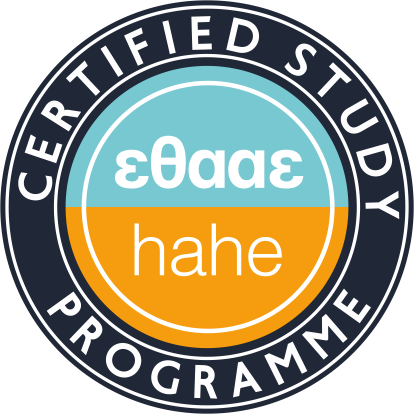Ονοματεπώνυμο: Καρτάλη Μαρία
Θέμα: Επίδραση σιμβαστατίνης παρουσία ορμονών στην έκφραση μεμβρανικών υποδοχέων σε κύτταρα τριπλά αρνητικού καρκίνου του μαστού.
Επιβλέπων: Δημήτριος Βύνιος, Καθηγητής
Ημερομηνία: 8 Οκτωβρίου 2025
Ώρα: 09:00
Τόπος: https://upatras-gr.zoom.us/j/97897724614?pwd=tY2hN2T9Yklwe2WG7zVTLp02pTQJuU.1
ΠΕΡΙΛΗΨΗ
Ο καρκίνος του μαστού είναι ο πιο συχνός καρκίνος στις γυναίκες παγκοσμίως. Μοριακά διακρίνεται σε πέντε υπότυπους, με τον τριπλά αρνητικό καρκίνο του μαστού (TNBC) να αποτελεί το 15-20% των περιπτώσεων, καθώς σχετίζεται με μια πιο επιθετική κλινική πορεία, χειρότερη πρόγνωση και υψηλότερα ποσοστά μετάστασης και υποτροπής σε σύγκριση με άλλους υποτύπους καρκίνου του μαστού. Η απουσία έκφρασης υποδοχέων οιστρογόνων (ER), υποδοχέων προγεστερόνης (PR) και υποδοχέα ανθρώπινου επιδερμικού αυξητικού παράγοντα 2 (HER2), περιορίζει τις διαθέσιμες στοχευμένες θεραπευτικές προσεγγίσεις, γεγονός που υπογραμμίζει την ανάγκη για ανάπτυξη νέων, πιο αποτελεσματικών θεραπειών για την αντιμετώπισή του.
Οι στατίνες, οι οποίες αποτελούν εκτεταμένα χρησιμοποιούμενα υπολιπιδαιμικά φάρμακα για την πρόληψη καρδιαγγειακών νοσημάτων, έχουν προσελκύσει σημαντικό ερευνητικό ενδιαφέρον. Οι στατίνες αναστέλλουν την HMG-CoA αναγωγάση, μειώνοντας όχι μόνο τα επίπεδα χοληστερόλης αλλά και τα ενδιάμεσα ισοπρενοειδή, τα οποία είναι απαραίτητα για την πρενυλίωση πρωτεϊνών όπως οι μικρές GTPάσες της οικογένειας Rho, που ρυθμίζουν κρίσιμες κυτταρικές διεργασίες όπως ο πολλαπλασιασμός, η εισβολή και η μετανάστευση.
Στην παρούσα μελέτη διερευνήθηκε η επίδραση της σιμβαστατίνης στις λειτουργικές ιδιότητες κυττάρων τριπλά αρνητικού καρκίνου του μαστού υψηλής μεταστατικότητας, MDA-MB-231 (ERα-/ERβ+) και Hs578T (ERα-/ERβ-) και επίσης στην έκφραση ορισμένων κυτταρικών συστατικών που αφορούν υποδοχείς, δείκτες βλαστικότητας και/ή μεταναστευτικής ικανότητας. Τα αποτελέσματα συσχετίστηκαν με βάσεις δεδομένων ασθενών που αφορούν στην έκφραση αυτών των συστατικών, αλλά και στην επίδραση που έχουν στην επιβίωση των ασθενών. Η χορήγηση της σιμβαστατίνης ανέδειξε παρόμοια κυτταροστατική δράση και στις δύο κυτταρικές σειρές, MDA-MB-231 και Hs578T, με τιμές IC₅₀ 1,25 μΜ και 1,04 μΜ αντίστοιχα. Η προγεστερόνη δεν επηρέασε σημαντικά την επιβίωση των κυττάρων, ενώ η οιστραδιόλη άσκησε ήπια θετική δράση η οποία εξουδετερώθηκε από τη σιμβαστατίνη.
Η μετανάστευση και των δύο κυτταρικών σειρών μειώθηκε σε υψηλές συγκεντρώσεις σιμβαστατίνης, υποδεικνύοντας αναστολή της επιθετικότητας. Παρά το ότι οι στεροειδείς ορμόνες ενίσχυσαν τη μεταναστευτική ικανότητα, η σιμβαστατίνη, ακόμη και σε χαμηλές συγκεντρώσεις, ανέστειλε αυτήν τη δράση. Σε επίπεδο γονιδιακής έκφρασης, η σιμβαστατίνη συσχετίστηκε με μείωση δεικτών που σχετίζονται με επιθετικότητα και μετάσταση, όπως οι HMMR, SNAI1 και η MT1-MMP, εύρημα που συμφωνεί με την αντικαρκινική της δράση.
Η διαφοροποιημένη απόκριση μεταξύ των δύο κυτταρικών σειρών ενδέχεται να οφείλεται στην παρουσία του υποδοχέα ERβ στα MDA-MB-231. Υπό συνθήκες καλλιέργειας με 17β-οιστραδιόλη, ο ERβ μπορεί να ενισχύει την οιστρογονo-εξαρτώμενη σηματοδότηση και να μετριάζει την ανασταλτική δράση της σιμβαστατίνης. Συνολικά, τα ευρήματα υποδεικνύουν ότι η ενδεχόμενη εφαρμογή της σιμβαστατίνης σε χημειοθεραπευτικά σχήματα θα πρέπει να καθορίζεται όχι μόνο από τα μοριακά χαρακτηριστικά του όγκου αλλά και από το ορμονικό προφίλ των ασθενών.
ABSTRACT
Breast cancer is the most prevalent malignancy among women worldwide. Molecularly, it is classified into five distinct subtypes, with triple-negative breast cancer (TNBC) representing 15–20% of cases. TNBC is characterized by a highly aggressive phenotype and elevated metastatic potential. Moreover, the lack of expression of estrogen receptors (ER), progesterone receptors (PR), and human epidermal growth factor receptor 2 (HER2) markedly restricts the available targeted therapeutic options, underscoring the critical need for the development of novel and more effective treatment strategies.
Statins, widely used lipid-lowering agents for the prevention of cardiovascular diseases, have garnered considerable research interest due to their potential anticancer properties. By inhibiting HMG-CoA reductase, statins reduce not only cholesterol levels but also intermediate isoprenoids, which are essential for the prenylation of proteins, such as the small Rho GTPases, that regulate key cellular processes, including proliferation, invasion, and migration.
In the present study, the effect of simvastatin on the functional properties of highly metastatic triple-negative breast cancer cells, MDA-MB-231 (ERα-/ERβ+) and Hs578T (ERα-/ERβ-), as well as on the expression of specific cellular components related to receptors, stemness, and/or migratory capacity, was investigated. The results were correlated with patient databases regarding the expression of these components and their impact on patient survival. Treatment with simvastatin demonstrated a similar cytostatic effect in both cell lines, MDA-MB-231 and Hs578T, with IC₅₀ values of 1.25 μM and 1.04 μM, respectively. Progesterone did not significantly affect cell viability, whereas estradiol exerted a mild positive effect that was neutralized by simvastatin.
Cell migration in both cell lines was reduced at higher simvastatin concentrations, indicating inhibition of aggressiveness. Although steroid hormones enhanced migratory capacity, simvastatin, even at low concentrations, abrogated this effect. At the gene expression level, simvastatin was associated with decreased expression of markers related to aggressiveness and metastasis, such as HMMR, SNAI1, and MT1-MMP, consistent with its anticancer activity.
The differential response observed between the two cell lines may be attributed to the presence of ERβ in MDA-MB-231 cells. Under culture conditions with 17β-estradiol, ERβ may potentiate estrogen-dependent signaling and attenuate the inhibitory action of simvastatin. Overall, these findings suggest that the potential incorporation of simvastatin into chemotherapeutic regimens should be guided not only by the molecular characteristics of the tumor but also by the hormonal profile of the patients.
--
Demitrios H. Vynios
Professor of Connective Tissue Biochemistry
Biochemistry, Biochemical Analysis & Matrix Pathobiochemistry Research
Group
Department of Chemistry
University of Patras,
26504 Patras, Greece
Tel.: GR+2610997914




